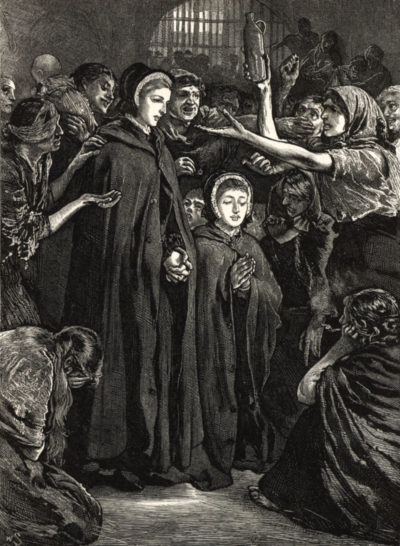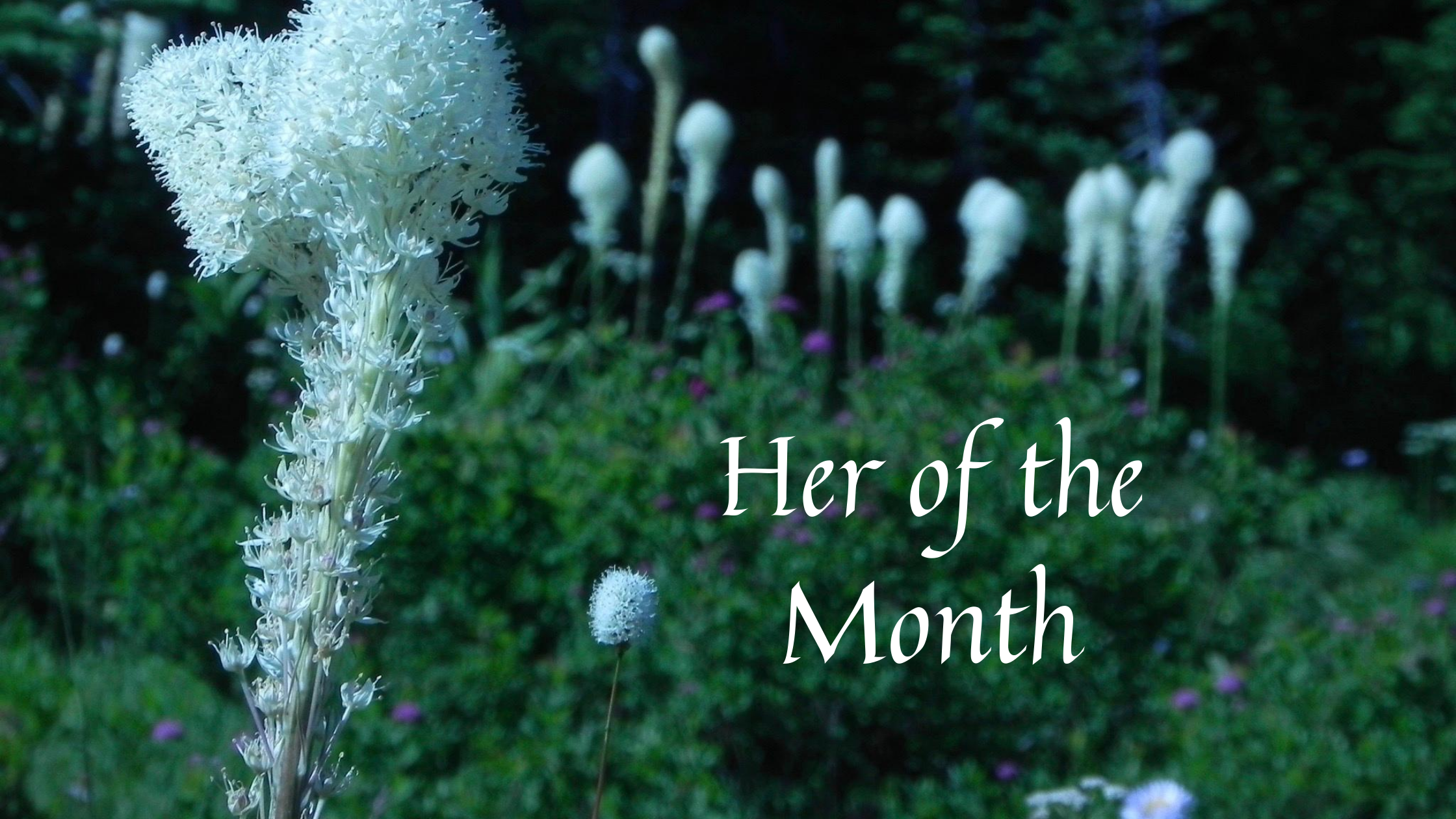
We’ve been considering the fact that all human life is sacred because we are all bearers of the image of God. Yet there are many situations where people are considered worthless. Take prisons, for example. In the early 19th century the deplorable conditions in prisons removed any dignity the prisoner might have still clung to. Newgate Prison in London was one such institution. Author Bianca White writes, “Newgate Gaol [Prison] was notorious for its appalling conditions being dank, dirty, squalid and infested with lice.”¹
Elizabeth Fry, “the angel of prisons”
Elizabeth Fry (1780-1845), a Quaker and mother of ten children, felt the call of God on her life to “devote her life to serving those whom Jesus identified as the least of these: the sick, the poor and prisoners.”² She began by going to Newgate Prison.
Years earlier, Elizabeth had been challenged to visit Newgate and had been shocked with what she saw. It was so far from her upbringing as a child in a wealthy Quaker home. She loved beautiful clothes and had whatever she needed. She suffered from insecurity, periods of depression, and nightmares. Yet she was faithful to the Lord’s call to care for “the least of these,” and went to Newgate to do what she could.
She found 300 women and children crowded into four rooms. Determined to help them, she returned the next day with clothes, food, and clean straw for them to sleep on. She asked what “we” can do, meaning the women and herself, for the children and the women requested that she teach the children to read and write. But where could they do it, she asked. The women said they would give up one of the rooms for a school for their children. So that’s what Elizabeth did.
Preparing prisoners for a life of freedom
She also taught the women to sew, knit, and embroider, skills that would give them a sense of worth as well as equip them for finding work when they got out of prison. And as they did their handwork, she read God’s Word to them.
Ultimately, her efforts and her advocacy with the prion officials led to reformation in Newgate Prison and beyond.
Elizabeth Fry also built a homeless shelter in London, as well as a training center for nurses. Some of those nurses served in the Crimean War with Florence Nightingale.
After her death in 1845, an asylum for the destitute was established by the Lord Mayor of London in memory of Elizabeth Fry, the “angel of prisons.”
Elizabeth’s faith in God, her sense of calling, and her conviction of the value of every human being equipped her to accomplish great things for Britain. So did the words of her mentor, William Savery: “Elizabeth, there are no lives so unlovely, none so unworthy or so lost that they are beyond the reach of God’s transforming light.”³
Good words for us too!
Ginger
¹Newgate Prion: A Georgian Hell Hole by Bianca White
²Extraordinary Women of Christian History by Ruth A. Tucker, p. 145
³Women Worth Knowing Podcast, Elizabeth Fry Parts 1&2, 3/2/21, 3/9/21




Leave a Reply